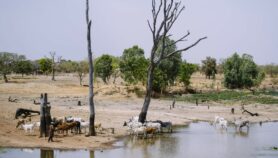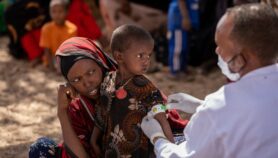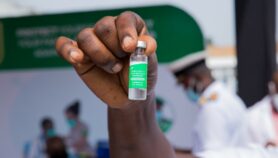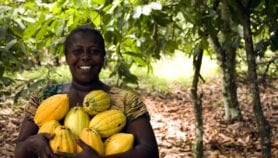By: Kennedy Abwao
Send to a friend
The details you provide on this page will not be used to send unsolicited email, and will not be sold to a 3rd party. See privacy policy.
[ADDIS ABABA] Heads of state at the African Union (AU) summit have endorsed a 20-year biotechnology action plan, but failed to reach agreement on an African science and innovation fund.
At the close of the summit in Addis Ababa, Ethiopia yesterday (30 January), African leaders endorsed almost all proposals in the AU executive council’s science report, which was agreed by foreign ministers on Saturday (27 January).
These include designating 2007 Africa’s year for innovations (see 2007 to be Africa’s ‘scientific innovations year’) and the creation of a Pan-African intellectual property organisation to protect indegenous innovations.
The biotechnology strategy calls for cooperation among African nations in specific regions to bolster research in different fields of research according to regional strength.
Eastern and northern Africa will work towards improving malaria control measures and managing HIV/AIDS, drawing on expertise from southern Africa nations.
North Africa will advise other regions on drug manufacture, whilst eastern Africa will share its knowledge of livestock research technology. West Africa has expertise in agricultural biotechnology and central Africa in biodiversity.
Countries will be grouped under regional economic bodies to implement goals outlined in the strategy, and will report to the AU on their progress.
Regarding funding, the heads of state decided that further studies were needed on the proposed African Science and Innovation Fund (ASIF).
The fund was originally proposed as an African Science and Innovation Facility, but the leaders disagreed on whether it was prudent to create another institution, which would guzzle more funds and increase operational costs.
They agreed on a fund that would piggyback onto a wider plan to finance the Consolidated Plan of Action (see Support urged for US$160m plan for African science) managed by an existing organisation.
African scientists familiar with the closed-door discussions said an expert panel had been asked to study the proposed institutional framework of ASIF and report to a ministerial meeting to be held in Kenya sometime later this year.
John Mugabe, advisor on science and technology to the New Partnership for Africa’s Development, had said earlier that the African Development Bank would likely run ASIF with financial contributions from AU member states.
There was also a proposal to set up an AU-appointed authority to oversee ASIF operations. In their executive council report, African foreign ministers recommended that a legal framework be developed to establish ASIF as an intergovernmental authority, tasked with the promotion of science and technology.
Read more about the AU summit in SciDev.Net’s dedicated news focus.













